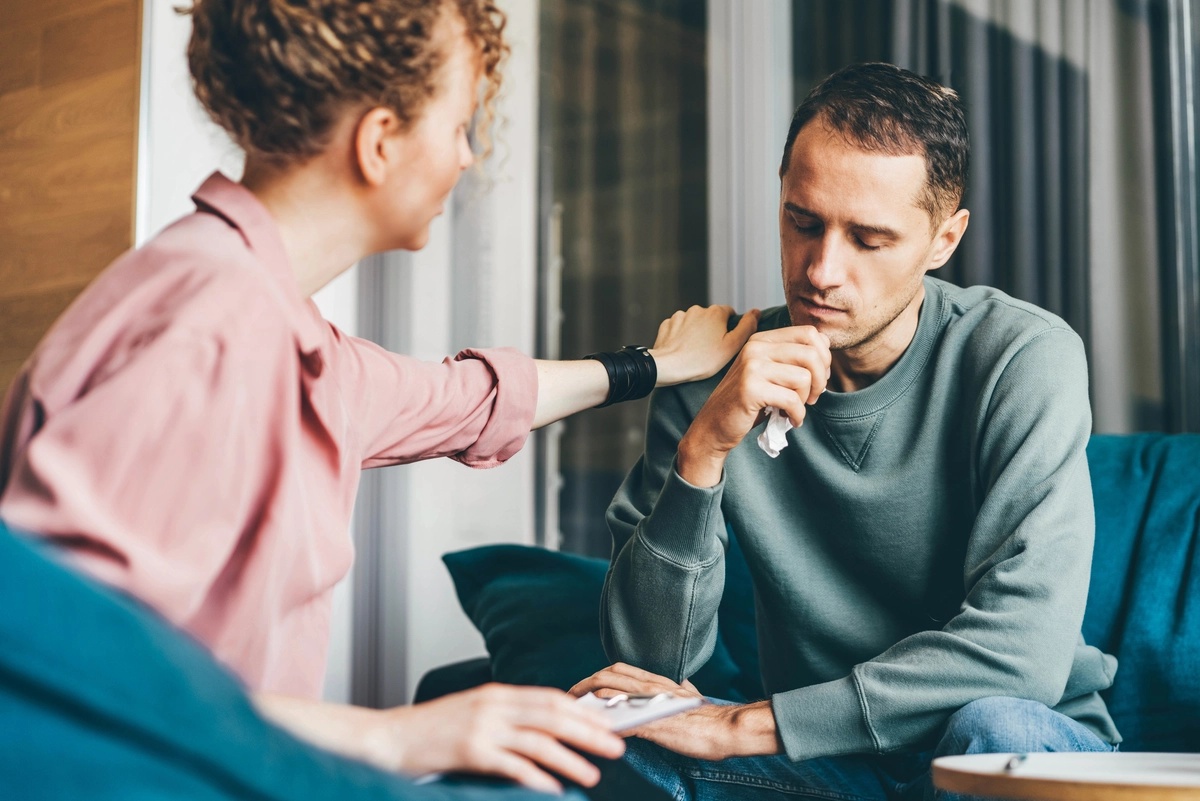Drug Rehab: Understanding Drug Rehab Programs, Levels, and Aftercare


Over time, drug rehab has transformed from a stigmatized topic to a crucial aspect of healthcare. Today, drug rehab centers offer comprehensive treatment programs tailored to individuals' needs, focusing on recovery and long-term wellness. These facilities provide a supportive environment for those battling addiction, offering therapy, medical assistance, and holistic approaches to address the root causes of substance abuse.
If you or a loved one are struggling with addiction, reach out to The Forge Recovery Center now.
Understanding Rehab: What Is Drug Rehab?
Drug rehabilitation, also known as drug rehab, is a treatment program designed to help individuals overcome substance abuse and addiction. It involves a variety of services and approaches aimed at addressing the physical, psychological, and social aspects of addiction. The ultimate goal of drug rehab is to achieve sobriety and maintain long-term recovery.
The time people spend in drug rehab can vary widely, but longer stays are associated with more successful results. Rehab programs can be as short as a week or extend to several months. The length of the stay depends on individual circumstances, such as the severity and duration of addiction, personal commitments, and financial resources.
Drug Rehab Program Types
There are two types of drug rehab programs:
Inpatient Drug Rehab: During inpatient drug rehab, patients live at the treatment center during the program. This allows for a high level of support, including medical monitoring
Outpatient Drug Rehab: At an outpatient drug rehab, clients live at home while they attend treatment during the day or evening.
Each program type caters to different needs. Inpatient programs offer 24/7 care, while outpatient programs allow flexibility for daily commitments such as work or school.
Treatment Levels
In drug rehab, various levels of care are available based on the addiction's severity. Inpatient treatment involves residing in a facility for intensive care, while outpatient care allows you to attend therapy sessions while living at home.
While outpatient is more flexible in this regard, intensive care offers more structured support with its around-the-clock oversight. Your level of treatment will depend on the severity of the addiction.
Treatment Stages
The drug rehab process typically involves sequential stages starting with detoxification to rid the body of substances. Rehabilitation follows detox, focusing on behavioral changes.
Aftercare is crucial post-rehab to maintain sobriety. It includes ongoing counseling and support groups for long-term recovery success.
Aftercare Role
Aftercare plays a vital role in sustaining long-term sobriety after completing a rehab program. Support networks and recovery communities provide essential ongoing assistance.
Implementing strategies for relapse prevention is key during aftercare. These strategies can greatly help individuals navigate challenges and maintain their progress toward sobriety.

Drug Rehab Programs Explained: A Treatment Overview
Drug rehab programs vary in type and intensity depending on the level of care needed. Some individuals may require intensive 24/7 medical supervision, while others may benefit from less structured outpatient programs.
Most drug rehab stays begin with drug detox. This process involves safely removing the toxic substances from the body and managing the withdrawal symptoms. Once detox is complete, individuals can move on to other treatment methods.
Drug Detox
Drug detox is the first step of drug rehab and can take place in an inpatient or outpatient setting. In an inpatient setting, individuals stay at the rehab center for 24/7 medical monitoring and support during the withdrawal process.
Detox is not a standalone treatment but rather a necessary step before other therapies can be effective. It helps manage the intense physical and psychological symptoms that occur when someone stops using drugs. Medical professionals may use medication-assisted treatment (MAT) to ease symptoms and lessen cravings, making the detox process more comfortable.
Inpatient Drug Rehab
Inpatient drug rehab programs provide a structured environment for individuals to focus on their recovery without outside distractions or temptations. These programs offer intensive therapy, counseling, and support services while also addressing medical needs.
During this time, individuals participate in individual and group therapy sessions, learn coping skills, and develop relapse prevention strategies. The length of the stay may vary based on an individual's progress and recommended treatment plan.
Outpatient Drug Rehab
Outpatient drug rehab programs offer flexibility for individuals who cannot commit to a full-time inpatient program. These programs allow individuals to attend therapy and treatment sessions while still maintaining their daily responsibilities, such as work or school.
Outpatient programs are often recommended for those with mild addiction or as a step-down option after completing an inpatient program.
Partial Hospitalization (PHP)
Partial hospitalization programs (PHP) offer structured treatment similar to inpatient rehab but on a part-time basis. Individuals attend therapy sessions and receive medical care during the day before returning home at night.
Intensive Outpatient Program (IOP)
An intensive outpatient program (IOP) provides more flexibility than PHPs, with fewer hours of treatment per week. Individuals may attend therapy sessions and counseling several times a week while still maintaining their daily responsibilities.
Aftercare
After completing a drug rehab program, individuals are encouraged to continue their recovery journey through aftercare programs. These programs provide ongoing support and guidance, helping individuals maintain sobriety and prevent relapse.
Aftercare may include individual therapy sessions, group counseling, sober living arrangements, and support groups such as Alcoholics Anonymous or Narcotics Anonymous.
Behavioral Therapies
Behavioral therapies in rehab programs encompass cognitive-behavioral therapy and motivational interviewing. These therapies focus on changing harmful behaviors by addressing underlying issues. Motivational interviewing aims to enhance motivation for change, while cognitive behavioral therapy (CBT) helps individuals identify and modify negative thought patterns.
Medication Use
In addiction treatment, medications play a crucial role in managing withdrawal symptoms. Medications can assist individuals in overcoming cravings and maintaining abstinence. Medication-assisted treatment combines medications with behavioral therapies for comprehensive care.
Holistic Approaches
Holistic treatments, including yoga and meditation, address the individual's mind, body, and spirit. Personalized treatment plans cater to the unique needs of each individual.

Are You Struggling with Mental Health or Addiction?
We Can Help. Call Us Now!
CALL: 877-839-1772
The Importance of Aftercare
Aftercare is a critical aspect of drug rehab and should not be overlooked. Addiction is a chronic illness, and recovery is an ongoing process that requires continued support and guidance.
Aftercare programs help individuals stay on track with their recovery goals by providing a network of support and resources. These programs can also address any underlying issues or triggers that may contribute to relapse.
Long-Term Support
Long-term support plays a crucial role in addiction recovery by providing ongoing assistance beyond initial treatment. Family therapy offers a supportive environment for rebuilding relationships strained by addiction. Peer support groups, like Alcoholics Anonymous, offer a sense of community and understanding.
Engaging in continued support significantly contributes to sustained sobriety by offering guidance during challenging times. These support systems help individuals navigate triggers and temptations, reducing the risk of relapse.
Changing Lifestyles
Another crucial aspect of drug rehab is addressing and changing unhealthy lifestyle habits that may have contributed to addiction. This could include improving diet, exercise, and sleep habits.
Drug addiction can take a toll on an individual's physical health, so incorporating healthy habits into daily life can aid in the recovery process. Additionally, engaging in positive activities such as hobbies or volunteer work can provide a sense of purpose and fulfillment, helping to prevent relapse.
Recovery Communities
Joining recovery communities post-rehab offers numerous benefits, including a sense of belonging and camaraderie with others facing similar challenges. These communities provide peer support, encouragement, and accountability crucial for maintaining sobriety.
Recovery groups create an environment where individuals can share their experiences openly, fostering a sense of connection and understanding that is essential for long-term recovery success.
Personal Stories
Inspiring personal stories from individuals who have successfully completed drug rehab serve as beacons of hope for those still struggling. These stories highlight the resilience and determination required to overcome addiction's grip.

Financing Rehab Treatment: How Do I Pay for Drug Rehab?
Drug rehab can be expensive, but there are various options available for financing treatment. Some individuals may have insurance coverage that includes addiction treatment services, while others may need to explore other payment options.
Insurance Coverage
Insurance coverage plays a crucial role in accessing drug rehab services. Many insurance plans include addiction treatment as part of their coverage, providing individuals with the necessary financial support for recovery. It is essential to verify insurance benefits before enrolling in a rehab program to understand the extent of coverage and potential out-of-pocket costs.
Some insurance plans cover inpatient and outpatient rehab programs, medication-assisted treatment, therapy sessions, and other essential services.
Prior authorization may be required for certain treatments, so it's important to check with the insurance provider before starting the program.
Government Help
Some government programs, such as Medicaid and Medicare, may cover certain aspects of drug rehab treatment. Eligibility for these programs is based on income and other factors.
Payment Options
When seeking drug rehab treatment, individuals have various payment options available to them. In addition to insurance coverage, facilities often offer financing plans, scholarships, and sliding scale fees based on income levels. Understanding these options can help individuals make informed decisions about their treatment journey.
Financing options may include payment plans that allow individuals to spread out the cost of treatment over time.
Scholarships provided by rehab facilities or external organizations can help offset some or all of the treatment expenses for those in need.
Cost Management
Managing the costs associated with drug rehab is an important consideration for many individuals seeking treatment. Cost-effective treatment options exist that provide quality care without breaking the bank. Developing a financial plan and budgeting for rehab expenses can help individuals navigate this aspect of their recovery journey effectively.
Some cost-effective options include outpatient programs, group therapy sessions, and community-based support groups.
Creating a budget specifically for rehab expenses can help individuals track their spending and ensure they stay within their financial means.
Are You Struggling with Mental Health or Addiction?
We Can Help. Call Us Now!
CALL: 877-839-1772
How Can I Make Sure My Recovery Succeeds?
Recovery from substance use disorder is a lifelong process, and there are steps individuals can take to ensure their success in maintaining sobriety. These include:
Continue with Aftercare Services
As mentioned earlier, aftercare services are crucial for ongoing support and guidance during recovery. It’s essential to continue attending therapy sessions, support groups, and other resources to maintain accountability and address any challenges that may arise.
Surround Yourself with a Supportive Network
Having a network of supportive individuals can make a significant impact on recovery. It’s essential to surround yourself with people, family members, and friends who understand and support your journey towards sobriety.
Practice Mindfulness and Self-Care
Mindfulness techniques, such as meditation and deep breathing, can help cope with stress and triggers that may lead to relapse. Additionally, practicing self-care and engaging in activities that bring joy can help improve overall well-being. Remember that individuals, patients, and program participants have unique needs, so finding the right treatment is essential.
Explore various treatment options, including inpatient and outpatient treatment, rehab programs, and behavioral therapies. Collaborate with healthcare professionals to create a personalized treatment plan that addresses symptoms, signs, and substance use disorders. Consider a holistic approach that integrates medication management, detox, and ongoing treatment.
Also, remember that recovery is a journey - and seeking professional guidance and support is the first step. You’re not alone, and there are resources available to help you succeed on this path toward term recovery.

Life After Rehab: What Happens After I Leave Drug Rehab?
Once an individual has completed drug rehab, it’s essential to continue implementing strategies to prevent relapse. These could include avoiding triggers, seeking support when needed, and practicing self-care.
Avoid Triggers
Triggers are people, places, or things that may cause cravings to use drugs. It’s essential to avoid these triggers as much as possible and have a plan in place for when they cannot be avoided.
Build Healthy Relationships
Part of maintaining sobriety is building healthy relationships with others. This includes repairing any damaged relationships caused by addiction and establishing new connections with supportive individuals, family members, and friends who can aid in the recovery process.
Continue with Aftercare Services
As stated previously, it's crucial to continue attending aftercare services even after completing a drug rehab program. These resources can provide ongoing support and guidance during the transition back to daily life.
Establish a Support System
Building a strong support system can help individuals maintain sobriety by providing a network of resources and accountability. Be open and honest with your loved ones about your struggles and seek their support when needed.
Are You Struggling with Mental Health or Addiction?
We Can Help. Call Us Now!
CALL: 877-839-1772
Do I Need to Go to Drug Rehab? When Should I Seek Help?
It's essential to recognize the signs of drug addiction and seek help as soon as possible.
Don't Wait to Hit Rock Bottom
Many individuals believe they need to hit "rock bottom" before seeking help for their drug addiction. However, waiting for this lowest point can be dangerous and even life-threatening. Seeking help early on can prevent further harm and increase the chances of a successful recovery.
Are You Struggling to Quit?
If you find yourself struggling to quit using drugs despite wanting to, it's a clear indication that you may need professional help. Drug rehab can provide the necessary support and resources to overcome addiction.
Are Your Relationships Suffering?
Drug addiction can strain relationships with family, friends, and romantic partners. If you find yourself constantly arguing or feeling distant from loved ones due to drug use, it may be time to seek help. Repairing these relationships can be a crucial aspect of the recovery process.
Are Your Finances and Work Affected?
Drug addiction can also have a significant impact on an individual's finances and career. If you find yourself struggling to maintain employment or facing financial difficulties due to drug use, it may be time to seek help before further damage is done.

Closing Thoughts
Understanding the ins and outs of drug rehab is crucial for you or a loved one facing addiction. Rehab programs, levels of care, treatment stages, aftercare, and financing options all play a pivotal role in the recovery journey. By exploring these aspects thoroughly, you equip yourself with the knowledge needed to make informed decisions and take positive steps toward a healthier, drug-free life.
As you navigate the complexities of drug rehab, remember that support is always available. Whether through helplines like SAMHSA's or additional resources provided, reaching out for help is a sign of strength. Embrace the resources at your disposal, stay committed to your recovery path, and know that a fulfilling life free from addiction is within reach.
Are You Struggling with Mental Health or Addiction?
We Can Help. Call Us Now!
CALL: 877-839-1772
The Forge Recovery Center: Expert Addiction Care
Drug rehab is a critical step towards recovery from addiction. It provides individuals with the tools, support, and resources needed to overcome drug dependence and maintain sobriety. By understanding how to finance treatment, maintaining aftercare services, building a strong support system, and implementing strategies to prevent relapse, individuals can increase their chances of long-term success in recovery.
The Forge Recovery Center provides expert outpatient drug rehab care. Guided by trauma-informed principles, our drug rehab is the ideal place to safely address addiction at its roots. Our team of compassionate professionals will be your partners as you recover.
To learn more about our effective drug rehab programs, contact The Forge Recovery Center today.



